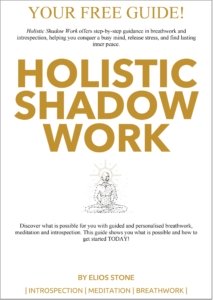Fate or Choice? What drives your life?
If you feel like a passenger in your own life journey?
OR
Believe that everything bad that happens must be because of something you did?
You may have an imbalanced locus of control!
I’ve always had a strong internal locus of control. But that doesn’t mean it’s always been healthily expressed. When you’ve got a strong locus of control, but it’s not balanced with trust, you feel like you can’t rely on anyone else. You tend to self-blame for every single eventuality.
In 2010, my triplet daughters were born by emergency C-section. One of my daughter’s heads was severely cut open during surgery. I spent years blaming myself, obsessing over what might have happened if I had taken more control of the situation. I obsessed for much of the first decade of her life, controlling all the things to ensure she had the best care, the best physio, the best rehab, and the compensation that she not only deserved but required.
The balance came for me when my disabled daughter needed to have additional support from outside the family, she needed to develop her own internal locus of control. Her diagnosis is that she is quadriplegic, registered blind, and non-verbal. Despite all this, she now has a balanced internal and external locus of control.
She has this balance because we made sure that she had every possible way to communicate her choices as best as she could. Making sure that she could clearly see her options and choices, and ensuring that she had a communication device that she could use to communicate her thoughts and feelings from as young an age as possible.
In this article, I wanted to talk about internal and external locus, and how you can develop better balance between the two. Finding this balance requires cultivating trust in yourself, so that you can live your life as you choose, and simultaneously being vulnerable and savvy enough to know when to trust other people. So that you don’t go through life either feeling like you’re a constant burden when you need help, or having no true connection. This balance is essential for healthy interdependent relationships with others and with nature itself.
Having a weak external locus of control means that you may perceive that the outcomes of your actions are largely influenced by external factors. It may mean that you feel that luck, fate, and other people or situational circumstances are what determine your existence. Unfortunately, this perspective can lead to feelings of helplessness, becoming overly passive, and having a lack of motivation.
Victim Mentality
Such a belief of having no control over your life can often lead to an overriding victim mentality. So, you attribute all of your successes and failures to anything that is an external source. It not only undermines your ability to be in your power but also your responsibility for your actions.
On the other hand, if you have a strong internal locus of control it means that you believe that the actions you take in life, your decisions, and your abilities have the biggest influence over your life. When people with a strong locus of control are more likely to feel confident, motivated, and empowered. They believe that they alone shape and mould their destiny. They’re more likely to take responsibility for what they do, face challenges, solve problems in a proactive way, and believe that their efforts will change results. Hard leaning in this direction can lead to isolation, superiority complexes, and debilitating disappointment and self-blame when things don’t work out as planned.
Like I said before, there has to be balance between this. Here are some bullet points that can help you to bring some more insights into where your locus of control swings on the pendulum. Have a read through these and see which ones feel true.
Comparative Description:
- Perception of Control:
- Overactive External Locus: Feels that life events and outcomes are out of their control. They might often say, “There’s nothing I can do about it” or “It’s just the way things are.”
- Overactive Internal Locus: Believes they can influence their circumstances and outcomes. They might often say, “I can change this”, or “My actions make a difference”, or think often “I don’t need anyone else.”
- Responsibility:
- Overactive External Locus: Tends to blame external factors for their failures and attribute successes to luck or help from others. They might avoid taking responsibility for their actions.
- Overactive Internal Locus: Takes responsibility for both successes and failures, believing that their efforts and choices are key. They are more likely to learn from mistakes and persist (sometimes to their detriment).
- Motivation and Initiative:
- Overactive External Locus: May feel demotivated and passive, waiting for things to happen rather than making them happen. They might avoid setting goals or making plans.
- Overactive Internal Locus: Is highly motivated and proactive, setting goals and taking steps to achieve them. They believe their hard work and determination is the only way to success.
- Response to Challenges:
- Overactive External Locus: May feel overwhelmed by challenges, believing that they cannot overcome obstacles due to external forces at play. They might give up easily.
- Overactive Internal Locus: Sees challenges as opportunities to grow and learn. They are likely to persist, adapt, and find solutions, believing in their ability to overcome difficulties. Can blame themselves and be overly responsible when things do not go as planned.
- Emotional Well-being:
- Overactive External Locus: May experience higher levels of stress, anxiety, and helplessness, feeling that they are at the mercy of external forces.
- Overactive Internal Locus: Generally experiences greater emotional stability and well-being, feeling in control of their life and capable of managing stress. Can often be a “lone wolf” and become isolated.
Here are some questions to help you with delving deep into this shadow exploration:
General Perspective
- Do I believe that my life is determined by my own actions or by external factors like luck, fate, or other people?
- When something goes wrong, do I typically blame myself or external circumstances?
- Do I feel like I have control over the direction my life is heading?
Success and Achievement
- When I succeed at something, do I attribute my success to my own efforts and skills or to luck and external help?
- Do I set goals for myself, and do I believe I can achieve them through hard work and determination?
Responsibility and Accountability
- Do I take responsibility for my actions, or do I often find myself making excuses?
- When faced with a difficult situation, do I take charge to change it, or do I wait for someone else to solve it for me?
Challenges and Obstacles
- How do I respond to challenges or obstacles? Do I see them as opportunities to grow, or do I feel defeated and give up easily?
- Do I believe that my efforts can overcome obstacles, or do I think that certain situations are out of my control?
Motivation and Initiative
- Do I feel motivated to take initiative and make things happen, or do I often wait for opportunities to come to me?
- When making decisions, do I trust my judgement, or do I rely heavily on others’ opinions and advice?
Emotional Well-being
- How do I handle stress and anxiety? Do I believe I can manage them, or do I feel overwhelmed by external pressures?
- Do I feel empowered and capable of creating positive changes in my life, or do I feel like a victim of circumstances?
Self-Reflection
- Do I frequently reflect on my own actions and how they contribute to my current situation?
- Am I willing to learn from my mistakes and adjust my approach, or do I feel that external factors are to blame for my failures?
Interpersonal Relationships
- Do I believe that I can influence and improve my relationships with others through my actions and communication?
- When conflicts arise, do I take steps to resolve them, or do I feel that the outcome is beyond my control?
- Do I tend to face all challenges alone, or accept or source help from others?
What can you do now you have more perspective?
One thing at a time. Knowing where to start can be tricky as one thing in life changes more insight needs to be brought. If you’re doing this alone, you need to feel where the biggest impact in your life can be made. Or, just start with the first item and work on that for now!
So, this article and all these questions give you further insight into your individual locus of control and what and where additional work could be done for you to bring balance.
Knowing where the locus of control within you is out of balance is something that comes quite naturally to the work that I carry out with clients. There are specific techniques and practices that help to change the balance between an external or internal locus.
Working with your boundaries and developing the ability to use your breath to guide yourself into deeper contact with your body to notice when certain situations or decisions don’t feel quite right.
If you have noticed some imbalance in your locus of control and you want to learn more about how Holistic Shadow Work can transform your experience , then click the button below and book your free consultation.







